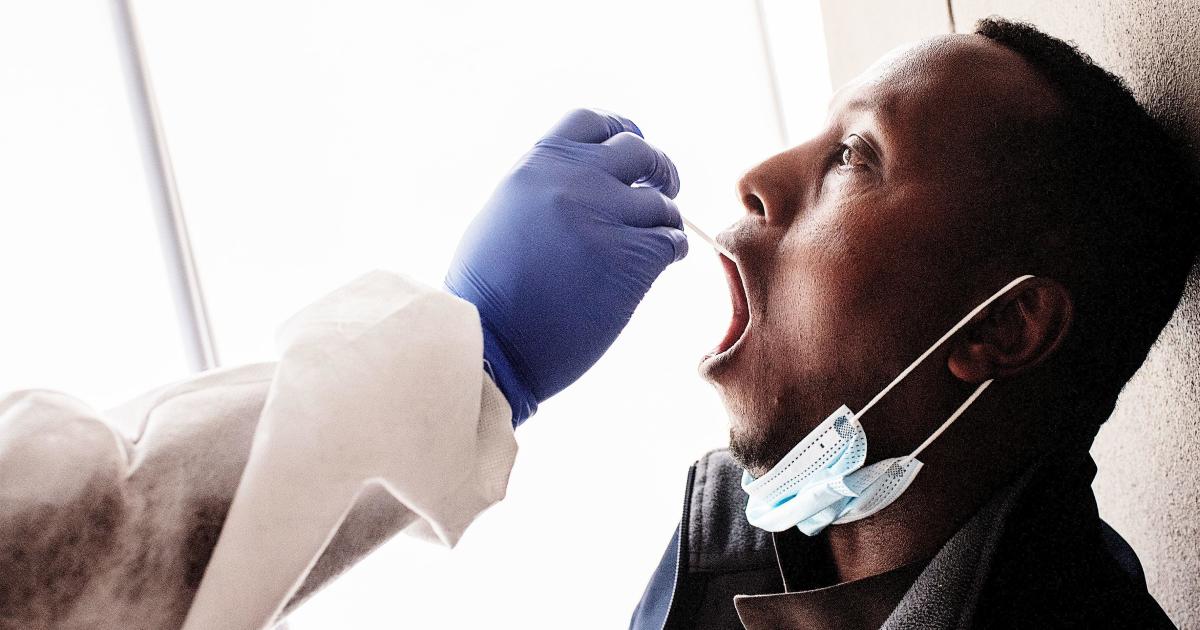Johannesburg, South Africa – The recent coronavirus variant identified in South Africa represents an even greater risk than the strain discovered several weeks ago in England, Warned Britain’s top health official on Monday. Their alarm came when scientists warned that the new strain that sweeps coastal communities in South Africa may be resistant to approved COVID-19 vaccines or awaiting approval in the US and Europe.
“I am extremely concerned about the South African variant,” Health Secretary Matt Hancock told BBC radio. “This is a very, very significant problem … it is even more problematic than the new UK variant.”
As the first doses of the Oxford University-AstraZeneca vaccine outside of medical trials were administered at an Oxford hospital on MondayOxford senior immunologist Professor John Bell – who helped create the vaccine at the prestigious university – said there was a “big question mark” about whether current versions of the vaccines would work with the South African variant.
He said it was “unlikely” that the mutation would render vaccines ineffective, but that they may need adjustments to provide as much protection against the strain as against others already in wide circulation elsewhere.
Lead researcher for the Oxford vaccine trial in South Africa, Professor Shabir Madhi, told CBS News on Monday that more than 13 variants of the coronavirus have been identified in the country since the pandemic began. He said the new one, 501.V2, which spread like wildfire in coastal cities in South Africa, is the most worrying mutation of the virus so far.
“It is not taken for granted that the vaccine will not work in this variant, but it is a consideration that the vaccine may not be fully effective,” he said.
Timely rehearsals
Oxford and US pharmaceutical giant Johnson & Johnson have conducted human trials of their vaccines in South Africa, including doses administered since the new variant began to spread.
“Those in our trial received the second dose during the time of this new variant, which is extremely fortunate,” said Madhi, adding that he expected the relevant trial results in the fourth week of January.
Glenda Gray, president of the South African Medical Research Council and leader of the Johnson & Johnson vaccine testing team, confirmed that the test also included giving participants doses in the midst of the new strain outbreak.
“It is fortunate that this moment will allow us to see if there is any change with this new variant” in the vaccine’s effectiveness, she said. His team also expects results “later this month”.
“This new variant should not delay access to the vaccine, but it also means that we need to keep an eye out for emergency infections,” she said, referring to the infection rate among those who received the vaccine.
The Johnson and Johnson vaccine requires only one dose, unlike the Oxford and Pfizer vaccines approved for use in Britain, or the Modern formula used in the United States in conjunction with Pfizer vaccines.
The Oxford vaccine was tested at seven different locations in South Africa on 2,100 volunteers, while about 45,000 people were involved in the Johnson and Johnson study.
So far, immunologists have expressed little concern about the effectiveness of approved or pending vaccines against other coronavirus mutations, including a variant discovered last year in the London region that has dramatically increased infection rates in the UK.
Government scientists say that, like the South African variant, the new British strain appears to be more easily transmitted among people, but they expect it to respond to vaccines in the same way as the more widespread versions of the disease.
South Africans were waiting
In the meantime, South Africans are still waiting to find out when a vaccine might actually be available in their country outside of testing.
The country’s largest union accused the government of “great incompetence” with its vaccine distribution plan. A group of eminent scientists, including Glenda Gray, criticized the government in an opinion article published on Sunday for what they said was a “surprising” lack of planning.
A few hours after the criticism, the Minister of Health, Dr. Zweli Mkhize, made an online presentation describing the government’s plan. He said the goal was to vaccinate two-thirds of South Africa’s 57 million people by the end of the year, starting in February.
“Our goal is to reach a minimum of 67% of the population to obtain collective immunity,” he said.
The South African Ministry of Health reported a total of 1.1 million cumulative cases of COVID-19 across the country, with a positivity rate of around 32% and almost 30,000 confirmed deaths. It is the worst national coronavirus epidemic in Africa.
